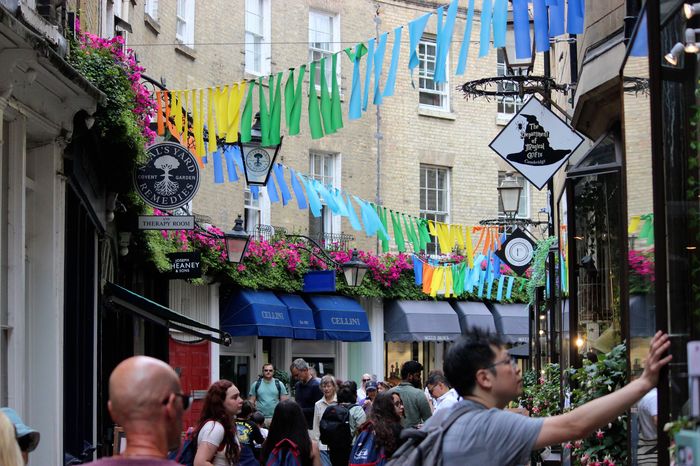News in brief: posh paper and groovy graffiti
A light-hearted round-up of Cambridge news from the past week, from truck driving professors to a famous former Clare student

Truck drivers in STEM
Professor Adrian Liston from the University of Cambridge has written a graphic novel to show varied paths into science, including his own. He was expected to go into truck driving in Australia like his family, but has since conducted work on tissues and the immune system at Cambridge. He was inspired to write the novel by his co-workers at the lab. Prof Liston said: “When I looked around at the amazing people in my lab, I realised that everyone had a story about overcoming barriers to enter science.”
Sunshine underpass
This isn’t a Mario Kart course – new graffiti in Ely, Cambridgeshire has been described as bringing “a little ray of sunshine.” Local students from Ely College have brightened up a local underpass with colourful graffiti, which was described by a local man as “spectacular.” The mural depicts the phrase “dare to dream” and art of a smiling woman. Maybe we could do with some of that in Cambridge – the only graffiti we tend to get is people’s initials carved into 400-year-old wooden beams.
Clare alumnus visits Cambridge Conservation Campus
Sir David Attenborough has visited Cambridge’s Conservation Campus, which he has previously described as “an extraordinary marriage between outstanding practical conservationists and inspiring intellectual thinkers which will shape the future of life on Earth.” He visited an art installation made by artists around the world in different landscapes, as well as discussing initiatives of the conservation team which included the usage of AI to identify animal species.
Putting the ‘scripts’ in ‘manuscripts’
Fifteen of them, actually. The Cambridge University Library is displaying “exceptionally rare” manuscripts from Asia and North Africa, including over fifteen languages and scripts. Curator Dr Chris Burgess, head of public programs at the Cambridge University Library, described the collection as “rare,” adding: “Ancient manuscripts are time machines, they take us to other worlds.” The manuscripts include a 730-year-old Persian commentary on the Quran as well as the oldest known commentaries from Aceh, Indonesia.
 Interviews / You don’t need to peak at Cambridge, says Robin Harding31 December 2025
Interviews / You don’t need to peak at Cambridge, says Robin Harding31 December 2025 Comment / What happened to men at Cambridge?31 December 2025
Comment / What happened to men at Cambridge?31 December 2025 News / Unions protest handling of redundancies at Epidemiology Unit30 December 2025
News / Unions protest handling of redundancies at Epidemiology Unit30 December 2025 News / Varsity’s biggest stories of 202531 December 2025
News / Varsity’s biggest stories of 202531 December 2025 News / Downing investigates ‘mysterious’ underground burial vault 29 December 2025
News / Downing investigates ‘mysterious’ underground burial vault 29 December 2025










